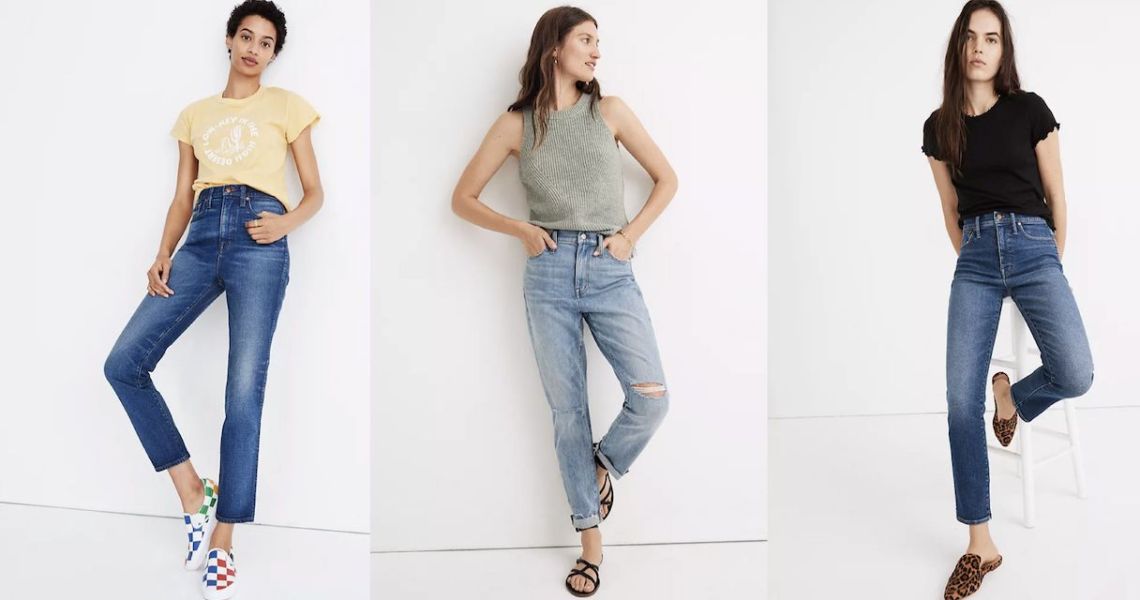For years, leaders of resale platforms have been saying that resale is on the verge of reaching mainstream acceptance among brands. Companies like Stella McCartney and Patagonia that are focused on sustainability took an early interest, but for the most part, fashion brands had been hesitant to cozy up to the resale market. But 2021 was the year when the explosion of crossovers between retail and resale finally took off.
Dozens of brands and retailers from Madewell to Farfetch launched their own resale programs, and as brand demand for resale increased, platforms received hundreds of millions of dollars in investment from Kering and SoftBank, among others.
The majority of the brands that launched a resale program in 2021 did so with the help of a third party. ThredUp, the $1.3 billion resale platform that went public in March, began offering resale-as-a-service to brands in 2018. That service was behind some of the highest-profile resale announcements of the year. It inked partnerships with Madewell, Farfetch, Fabletics, Crocs and Adidas, among others, bringing its total up to 21 partners.
Archive, another resale-as-a-service company, helped M.M.LaFleur, Dagne Dover and Filippa K start resale programs, and Trove brought Lululemon into the resale fold. Retailers Net-a-Porter and MyTheresa launched resale in 2021, as well, with Reflaunt and Vestiaire Collective, respectively.
There was no shortage of money flowing into the space. France-based Vestiaire Collective received a $200 million investment from SoftBank in September and $216 million from Kering in March. In January, Kering’s parent company Groupe Artemis made an investment of an undisclosed amount in streetwear reseller GOAT, which in turn invested $60 million with Gucci CEO Marco Bizzarri in sneaker reseller Grailed in September.
Vivrelle, a 3–year-old re-commerce company with a focus on accessories and a unique hybrid business model that combines elements of rental and resale, raised more than $26 million in April led by Origin Ventures. Wayne Geffen, co-founder of Vivrelle, said there’s been a notable shift in conversations with investors about resale. Vivrelle has seen triple-digit revenue growth in 2021.
“A lot less convincing needs to be done,” Geffen said. “Everyone is trying to figure out the future of retail, especially as consumers’ lives have changed so drastically. The acceptance of secondhand has grown so much. One of our investors was actually one of our customers, and that’s what led to them investing in us. The conversations we’re having with investors are so much easier now that more people are familiar with the business model.”
Ad position: web_incontent_pos1
The fashion resale market in the U.S. is expected to reach $76 billion annually by 2025, with demand increasing every year. According to GlobalData, secondhand apparel is growing 11 times faster than primary market apparel. Data from Google shows searches for secondhand were up by 80% this year, compared to last year. Luxury reseller Rebag said it quadrupled revenue growth in categories including watches and jewelry, compared to 2020, and tripled the number of products that moved through its platform.
“Not only are consumers searching for value due to price pressures caused by inflation and supply-chain disruptions, but they are increasingly aware of environmental waste and are prioritizing more sustainable options,” said Erin Wallace, vp of integrated marketing at ThredUp. “While economic factors may shift, we believe consumers will continue to choose secondhand first.”
According to Sarah Davis, founder of the luxury handbag-focused resale platform Fashionphile, the new demand for resale has many contributing factors, with the biggest being sustainability and a simple desire for affordability.
“People love getting a deal, getting something really valuable at a good price,” Davis said. “You get something really stylish, it’s close to new condition. Plus you get it at a great price and you can resell it again after a while. The loss in value is minimal over time since it’s already been driven off the lot, so to speak. It’s a smart investment.”




